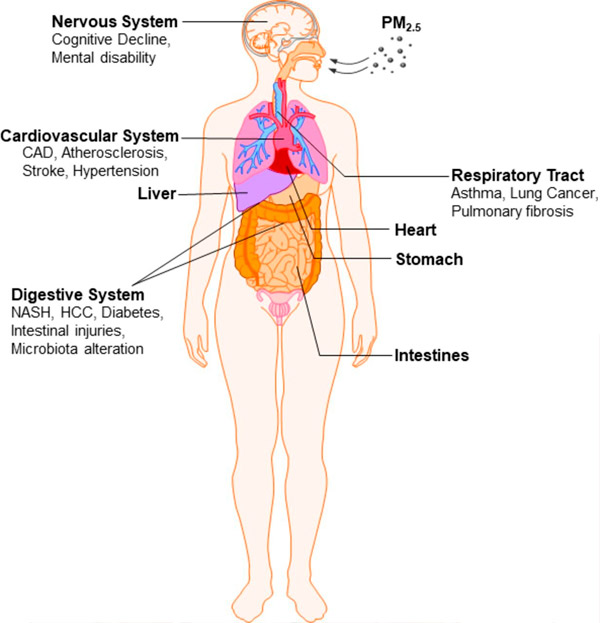
直径小于2.5微米的细颗粒物(PM2.5)是与各种健康问题相关的主要空气污染物。这些颗粒物可以深入肺部,甚至在吸入后进入血液。最近的研究显示,PM2.5还会带来严重的健康威胁:暴露于PM2.5还会损害消化系统,包括肝脏、胰腺和肠道。
最近的研究集中于PM2.5暴露如何引发消化系统细胞的应激反应。这些反应涉及细胞内被称为细胞器的特殊亚细胞结构,例如内质网 (ER)、线粒体和溶酶体。当PM2.5破坏这些细胞器时,它会在细胞内引发连锁反应,从而导致炎症和其他有害影响。
肝脏是重要的解毒和代谢器官,尤其容易受到PM2.5的损害。研究表明,接触PM2.5会导致肝脏出现一系列问题,包括炎症、应激反应、细胞器损伤和能量代谢受损。这些影响可能导致非酒精性脂肪性肝病(NASH)和2型糖尿病的发生。
PM2.5 的影响不仅限于肝脏,它还会损害胰腺和肠道。研究表明,PM2.5 会增加糖尿病患者胰腺功能障碍的风险,还会损害肠道细胞并增加肠道通透性。肠道通透性增加可能导致多种消化问题。
虽然最新研究提供了宝贵的数据,但关键问题仍然存在。科学家们正在继续研究细胞如何感知PM2.5,以及消化系统不同器官的应激反应有何不同。他们还在研究PM2.5暴露如何影响消化系统不同器官之间的相互作用,这可能会影响整体消化功能。

最后,研究人员正在探索饮食或药物干预是否可以减轻PM2.5的危害。有趣的是,一些研究表明,某些营养素,例如单不饱和脂肪酸和维生素,可能对抵御PM2.5的有害影响有一定的保护作用。
空气污染是一个复杂的问题,没有简单的解决办法。尽管研究仍在继续,但PM2.5的缓解措施以及目前对其对消化系统影响的理解凸显了空气污染对人类健康的深远影响。这凸显了持续努力减少空气污染并制定战略预防其有害影响的必要性。
该研究发表在《eGastroenterology》杂志上。

